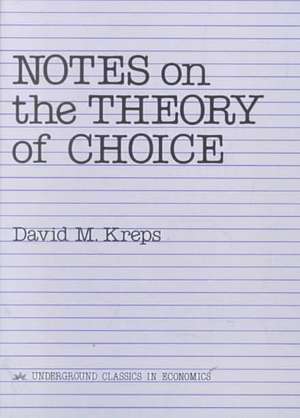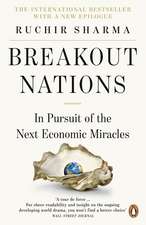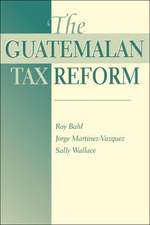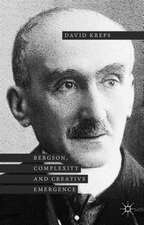Notes On The Theory Of Choice
Autor David Krepsen Limba Engleză Paperback – 12 mai 1988
| Toate formatele și edițiile | Preț | Express |
|---|---|---|
| Paperback (1) | 389.01 lei 3-5 săpt. | +15.45 lei 6-12 zile |
| Taylor & Francis – 12 mai 1988 | 389.01 lei 3-5 săpt. | +15.45 lei 6-12 zile |
| Hardback (1) | 1272.54 lei 6-8 săpt. | |
| Taylor & Francis – 13 iun 2019 | 1272.54 lei 6-8 săpt. |
Preț: 389.01 lei
Preț vechi: 422.85 lei
-8% Nou
Puncte Express: 584
Preț estimativ în valută:
74.44€ • 79.60$ • 62.06£
74.44€ • 79.60$ • 62.06£
Carte disponibilă
Livrare economică 28 martie-11 aprilie
Livrare express 13-19 martie pentru 25.44 lei
Preluare comenzi: 021 569.72.76
Specificații
ISBN-13: 9780813375533
ISBN-10: 0813375533
Pagini: 227
Dimensiuni: 138 x 216 x 12 mm
Greutate: 0.3 kg
Ediția:Revised
Editura: Taylor & Francis
Colecția Routledge
Locul publicării:Oxford, United Kingdom
ISBN-10: 0813375533
Pagini: 227
Dimensiuni: 138 x 216 x 12 mm
Greutate: 0.3 kg
Ediția:Revised
Editura: Taylor & Francis
Colecția Routledge
Locul publicării:Oxford, United Kingdom
Cuprins
* Introduction * Preference Relations and Revealed Preference * Ordinal Utility * Choice Under Uncertainty: Formulations and Representations * Von NewmannMorgenstern Expected Utility * Utility Functions for Money * Horse Race Lotteries and Roulette Wheels * Subjective Probability * Savages Theory of Choice Under Uncertainty * Conditional Preference, Conditional Probability, and Contingent Choice * Independence, Exchangeability, and de Finettis Theorem * Normative Uses of These Models on SubprobleMs. Dynamic Choice Theory and the Choice of Opportunity Sets * The Experimental Evidence
Descriere
In this book, Professor Kreps presents a first course on the basic models of choice theory that underlie much of economic theory. This course, taught for several years at the Graduate School of Business, Stanford University, gives the student an introduction to the axiomatic method of economic analysis, without placing too heavy a demand on mathematical sophistication.The course begins with the basics of choice and revealed preference theory and then discusses numerical representations of ordinal preference. Models with uncertainty come next: First is von Neumann?Morgenstern utility, and then choice under uncertainty with subjective uncertainty, using the formulation of Anscombe and Aumann, and then sketching the development of Savage's classic theory. Finally, the course delves into a number of special topics, including de Finetti's theorem, modeling choice on a part of a larger problem, dynamic choice, and the empirical evidence against the classic models.














